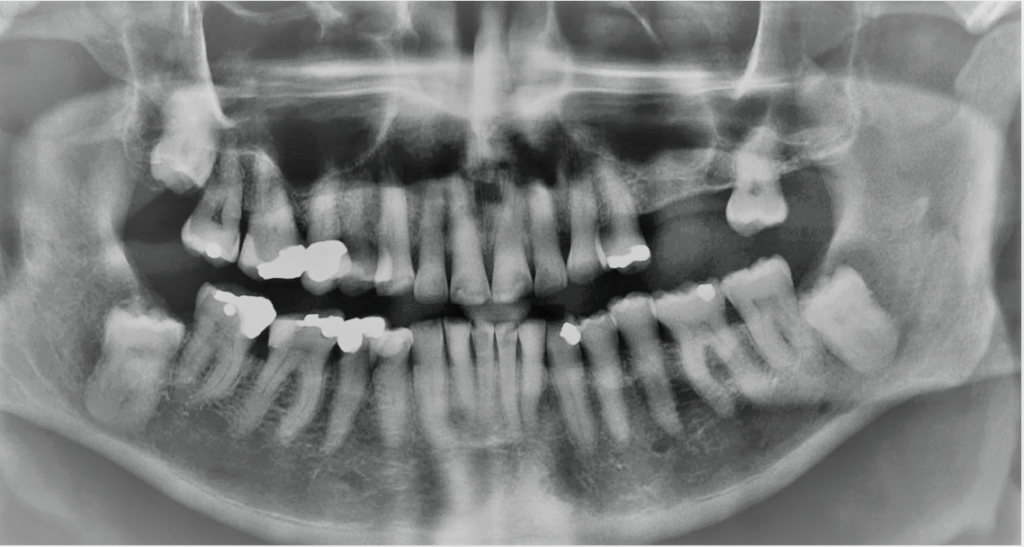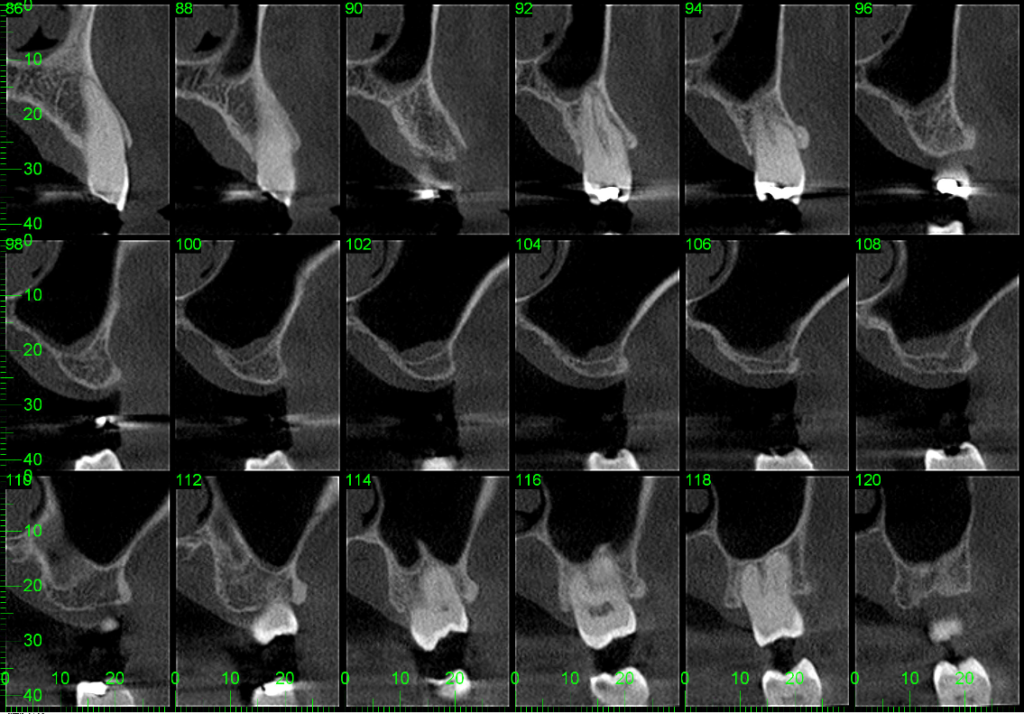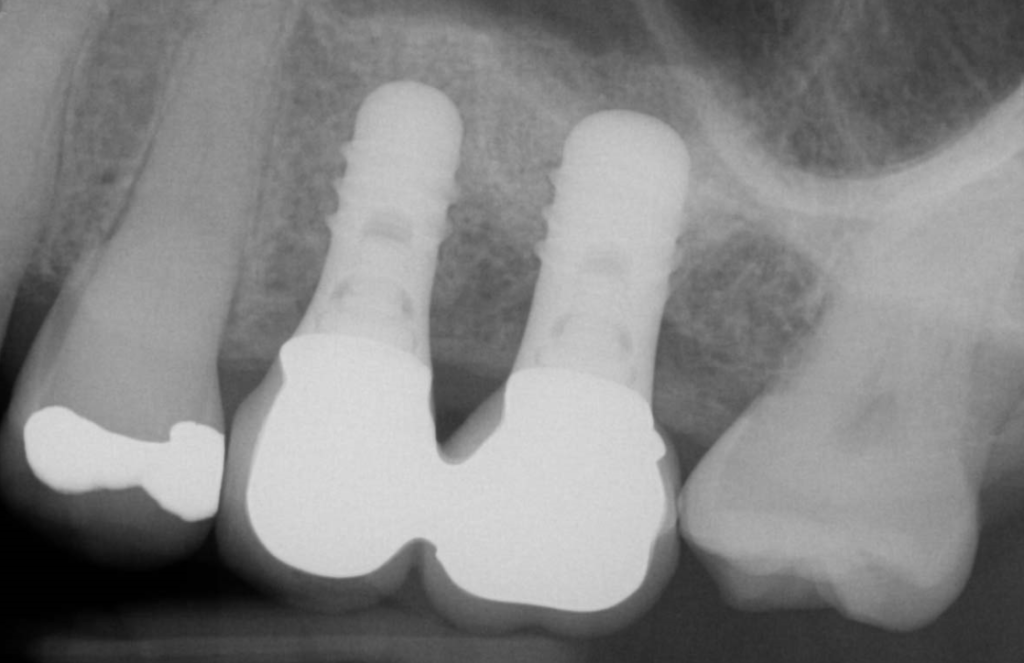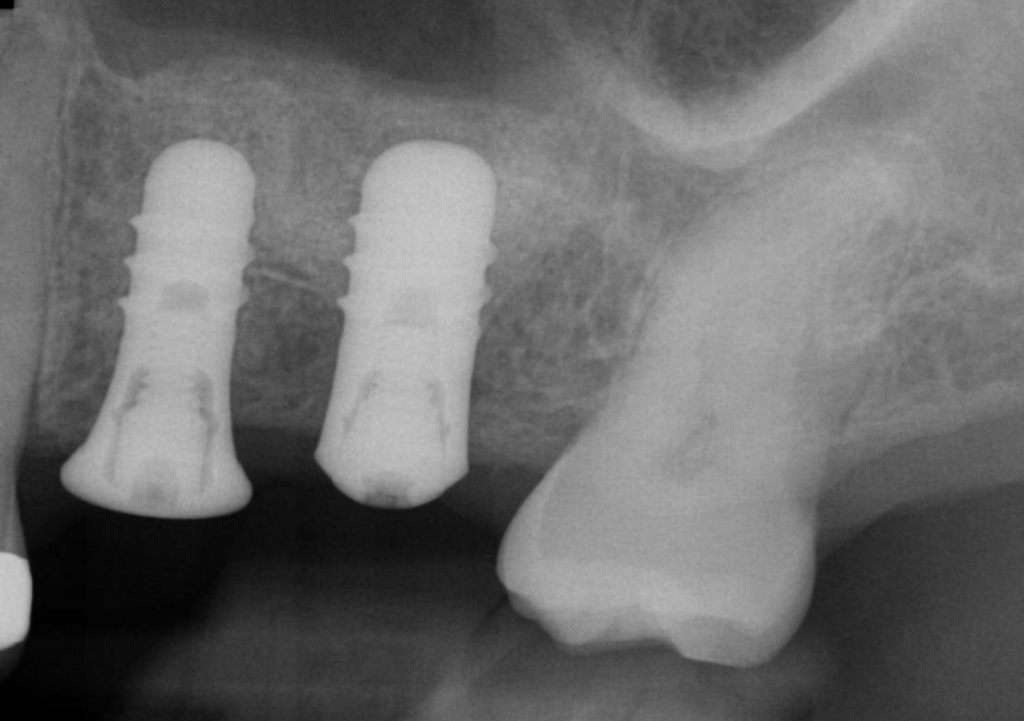Closed Sinus Lift

Sometimes patients present with less than ideal bone volume to allow for the provision of an implant-supported restoration. The case below highlights the advantages of a closed sinus floor elevation.
This healthy 64 year old male patient presented with missing teeth 25 and 26, which had been removed some years ago due to periodontal disease. Despite excellent oral health in general and thick biotype at the local sites of interest, there had been expansion of the maxillary sinus leading to only 4 mm of bone height at site 26. See diagnostic CBCT radiograph below.

Once all treatment options were discussed, including advantages and disadvantages of the closed ‘Summers’ osteotome approach, treatment progressed.
Using a two stage surgical approach, initial depth was confirmed with intraoperative radiographs using 2.8mm depth gauges.
Final drops through into the sinus floor was carried out using both 2.8 and 3.5 mm osteotomes (Buser Osteotome Kit, Straumann). The sinus floor Schneiderian membrane was then carefully raised using a mixture of Bioss and the patient’s blood placed using the 2.8 mm osteotome and gentle tapping. Final depth and status of graft volume and membrane integrity was confirmed with 3.5 and 4.2 mm depth gauges.
Two 4.1mm and 4.8mm tissue level implants were then placed, achieving primary stability of around 20 Ncm. The surgical site was then carefully closed and left to heal for four months.
Four month review radiograph showed excellent consolidation of the sinus floor graft, and ISQ readings of over 70 confirmed integration of the implants.
These implants were then restored with a screw retained PFM two unit bridge, abutment screws were torqued to 35Ncm, and access cavities were restored with PTFE tape and composite resin. Radiographs below shows excellent bone levels at one-year review.

Beautiful laboratory work provided by Dental Xpressions, Killarney Heights



